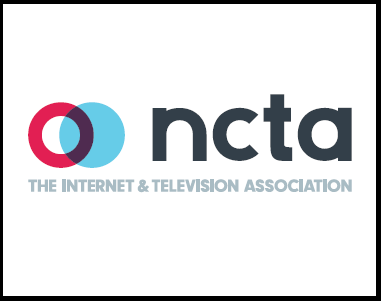NCTA Seeks FCC 'Guardrails' on Sinclair-Tribune
The smarter way to stay on top of the multichannel video marketplace. Sign up below.
You are now subscribed
Your newsletter sign-up was successful

NCTA-The Internet & Television Association, has stopped short of seeking outright denial of the Sinclair-Tribune merger, but it has major problems with it and suggests the FCC should consider disallowing new duopolies, even where they don't violate rules, and joint retrans negotiations among commonly owned Sinclair-Tribune stations.
That came in its response this week to Sinclair's lengthy defense of the public interest benefits filed with the FCC Aug. 22.
NCTA says the FCC should, at a minimum, review the deal under current media ownership limits, not hoped-for changes to the rules, and "consider" conditions based on "past conduct and unprecedented size.
NCTA said the deal would create a broadcast colossus with "exceptional leverage in business dealings with multichannel video programming distributors."
One potential sore spot with MPVDs could be the after-acquired clauses that would allow Sinclair to boost the retrans payments to Tribune stations to the level of Sinclair stations, which would mean MVPDs ponying up more for stations they already argue are inflating their prices.
The FCC is currently considering petitions to deny the $3.9 billion deal, which would give Sinclair over 200 stations and over 70% national audience reach. Sinclair says that scale will help it compete against large and largely les regulated MVPDs and over-the-top providers.
But NCTA says that size requires regulatory "guardrails" to protect consumers and competition, and not just the FCC-required divestitures to square with current ownership rules.
The smarter way to stay on top of the multichannel video marketplace. Sign up below.
Among those guardrails would be: "(1) Extend the ban on joint retrans negotiations [among noncommonly owned TV stations in a market] to the commonly owned Sinclair-Tribune stations, or, alternately, force it to divest where the deal would create a new duopoly [not just where that duopoly would violate the current duopoly rules]; (2) prevent Sinclair-Tribune from negotiating retrans on behalf of multiple stations in a DMA; (3) require Sinclair to give up a top-four network affiliation where it currently carries a second network on a multicast stream; (4) extend the FCC's consent decree with Sinclair another seven years and apply it to the combined company.
In July 2016, Sinclair agreed to pay almost $10 million to settle FCC investigations into whether it violated prohibitions on coordinated retransmission consent negotiations. The FCC said that nothing in the record raised substantial questions about Sinclair's basic qualifications to be a licensee and the company did not admit to any liability.
NCTA said the FCC's public interest standard requires it to look at the deal's upstream and downstream impacts -- on programmers and MVPDs -- and consider merger-specific (italics NCTA's, since they have long argued against non-merger-specific conditions in deals).
Sinclair has promised to abide by the FCC rules, but NCTA wants the FCC to make it clear that there be no effort, through waivers or other means, "to exceed the existing ownership rules unless and until the Commission actually changes those rules."
One way NCTA said Sinclair-Tribune could "evade" local duopoly rules is by using the FCC's channel-sharing rules under the incentive auction repack order to let its low-power TV's--more than 25-- in markets where it also owns a full-power to share spectrum and thus boost their reach to that of the full-power. LPTVs don't count towards duopoly restrictions.
NCTA also wants Sinclair to have to refile an amended application for the transfer of licenses if the FCC changes the ownership rules, which would mean a new comment period and restarting the FCC's 180-day shot clock on the deal vetting (currently the clock is on day 56).
Contributing editor John Eggerton has been an editor and/or writer on media regulation, legislation and policy for over four decades, including covering the FCC, FTC, Congress, the major media trade associations, and the federal courts. In addition to Multichannel News and Broadcasting + Cable, his work has appeared in Radio World, TV Technology, TV Fax, This Week in Consumer Electronics, Variety and the Encyclopedia Britannica.

